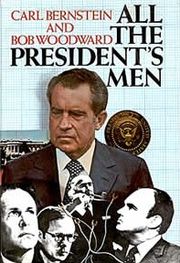A 
Short History
Although Jews were shareholders and directors of the Dutch East India Company, the company only employed Protestants. Baptised Jews worked at the Cape.
1804 – Religious freedom was established in the Cape.
A group of English Jews, including the Nordens and the Slomans, arrived with the 1820 settlers. The leader of one party absconded in Simon’s Town with the group’s money. The British government would not pay the full minister’s salary to his successor, Rev Boardman, as some of his group were Jewish.
26 September 1841 – Benjamin Norden arranged the first minyan on Yom Kippur at his house at 5 Helmsely Cottages on Hof Street. The next week, they established the Society of the Jewish Community of Cape Town, Cape of Good Hope or Tikvath Israel (Tikvath = Hope).
1842 – Albert Road Cemetery established. The first person to be buried there was Abraham Horn, one of the trustees of the Tikvath Israel. The first recognised Jewish birth in 1845 was his posthumous son.
1844 – First Jewish marriage between Amelia Marcus and Michael Benjamin. The wedding took place at Saint George’s Church under the Senior Colonial Chaplain, Rev Hough, in a ceremony in which, with the permission of the Attorney-General, all allusions to the Trinity had been carefully removed.
1847 – The first bris (circumcision) was performed by R Joseph, a qualified mohel, on his own newly born son.
1849 – The first public reading of the Torah in South Africa by Rev Pulver, the first minister in South Africa. Sloman’s 13 year-old son was the first boy to be called to the Torah. This brave young man had his bris the year before because there had been nobody in the Cape qualified to do it before then.
1849 – First synagogue purchased, on the corner of Bouquet and Saint John’s Street. A plaque on the wall marks the building. The first Jewish bride to be married there was one of Slomans’ eight daughters. These daughters had made themselves responsible for ensuring that the vestments and curtains of the synagogue were suitably embroidered.
1858 – Michael and Amelia Benjamin’s son was the first bar-mitzvah boy.
1863 – First purposely-built synagogue opened in South Africa, now at the site of the South African Jewish Museum.
When the gates from Eastern Europe were opened from 1881, a steadily increasing trickle of Jewish immigrants arrived in South Africa. It is estimated that 40 000 Jews arrived in the Cape between 1880 and 1910, and a further 30 000 between 1910 and 1948. Most of were from Lithuania, (two-thirds from the Kovno-area, including towns such as Kovno, Ponevez, Shavli, Rakishok, Poswohl and Shadowa) with the rest from Vilna, Grodno, Vitebsk, Courland and Minsk. Others came from outside the Litvak area, such as Lodz, Warsaw, Odessa, Kiev and Kharkov.
As a result of the increasing population, the Cape Town Hebrew Congregation moved to a new and larger building next door, now called the Great Synagogue. The building was consecrated on 13 September 1905, the anniversary of the opening of the Bouquet Street Synagogue in 1849 and the Saint John’s Street Synagogue in 1863.
The new immigrants settled mainly in District Six, Woodstock and areas close to the city, establishing their own synagogues . Most found it easier to find work in the small country towns and farming areas, which were economically undeveloped. At this time, Jewish communities began to spring up all over South Africa.
With their skills, these new immigrants were to have considerable impact on the South African economy in a time where it was a poorly developed colony relying on Britain for most of its merchandise. Over the years, our ancestors made a great contribution to the development of textiles, fashion, food processing, cinema, furniture, glass, chain stores and food chains in South Africa.
Various attempts were made to stop the increase of Jewish settlers: the Cape Immigration Restriction Act of 1902; the Immigrants Restriction Bill of 1912; the 1930 Immigration Quota Act; and the 1937 Aliens Bill, which finally stopped the flow of European Jews altogether. At the period of their greatest need to escape, the doors to South Africa were kept very tightly closed. Only between 6 000-7 000 German Jews managed to squeeze in between 1933-1939. Even after World War II, very few Jews were given permission to immigrate to South Africa. As a result, few Holocaust survivors could find refuge here.

 1
1